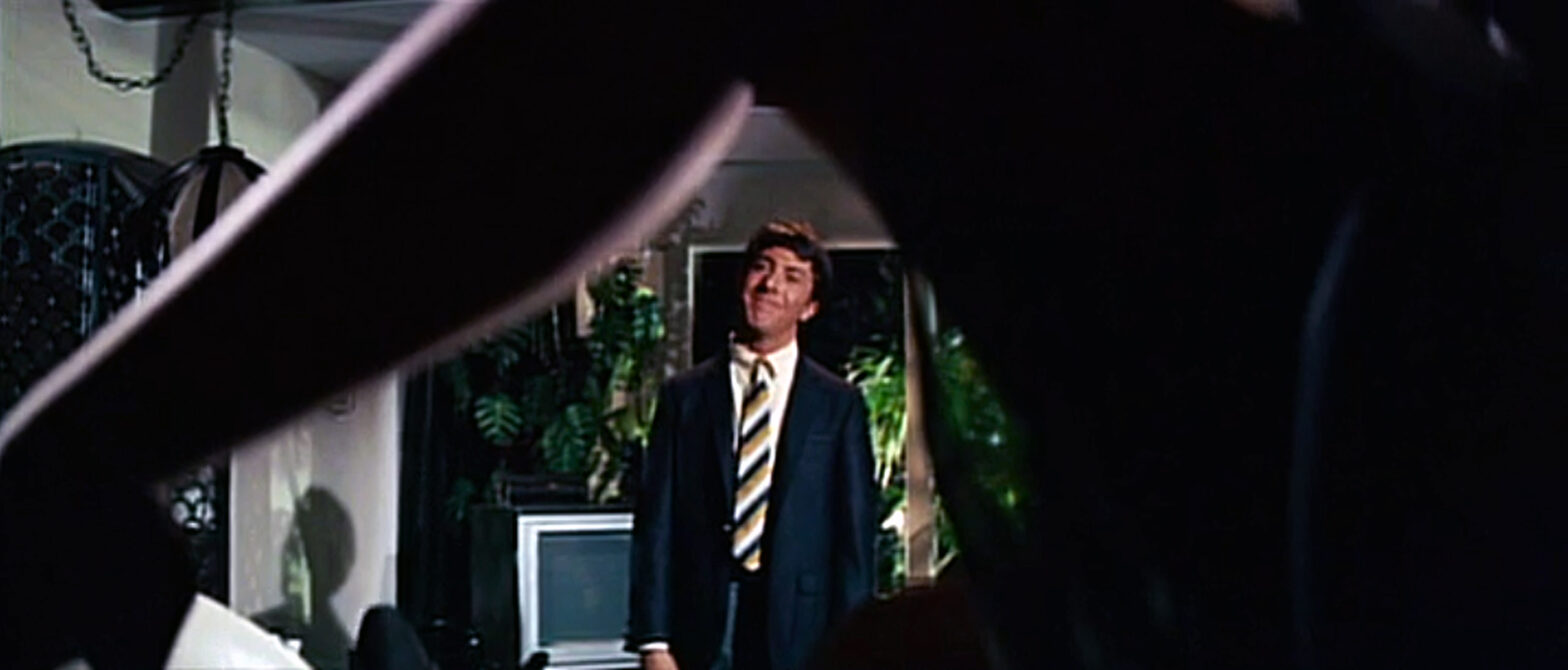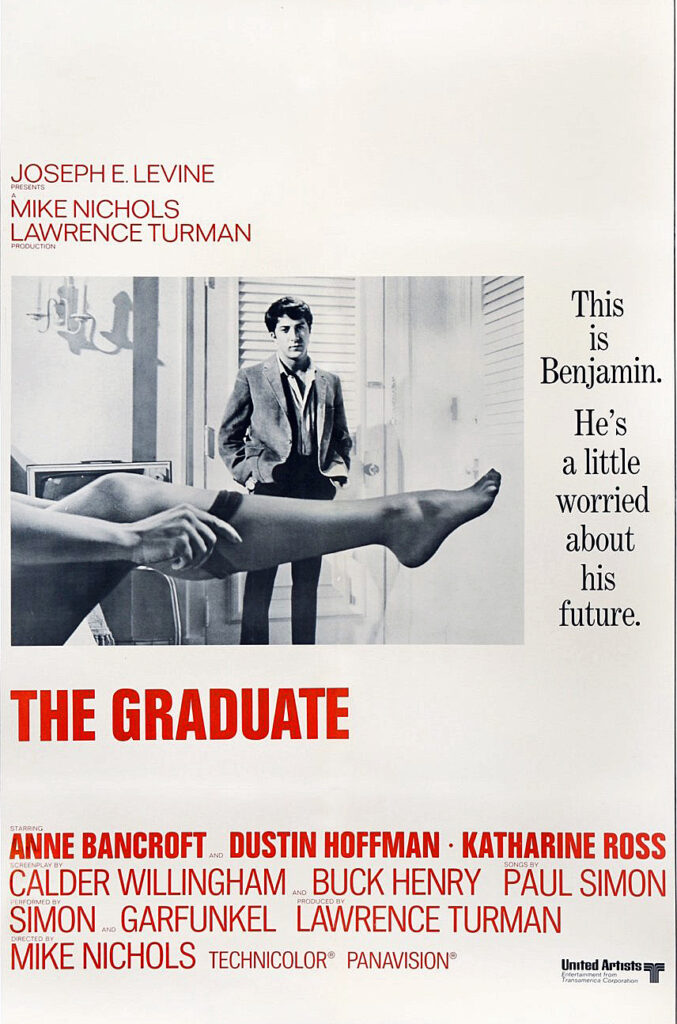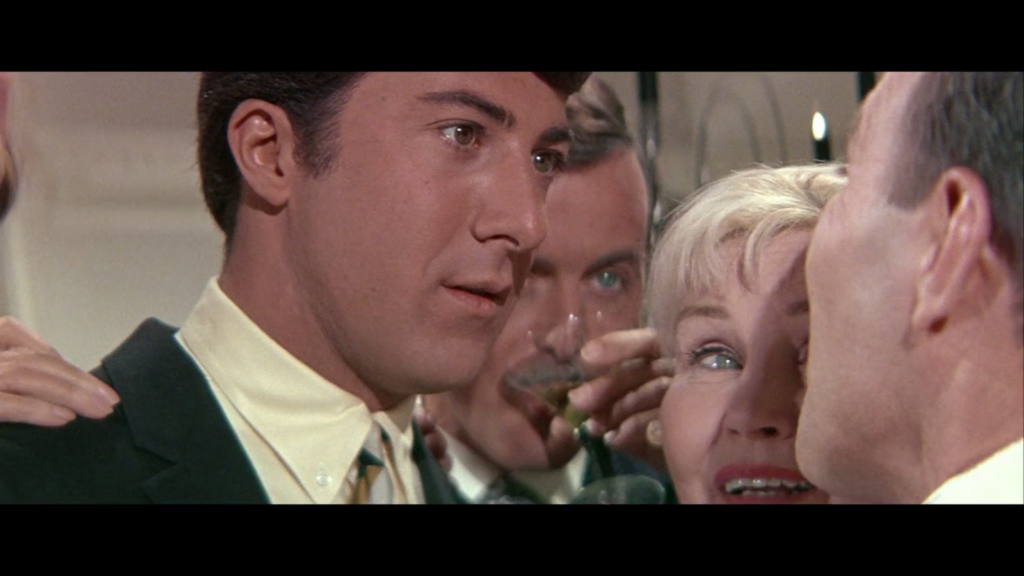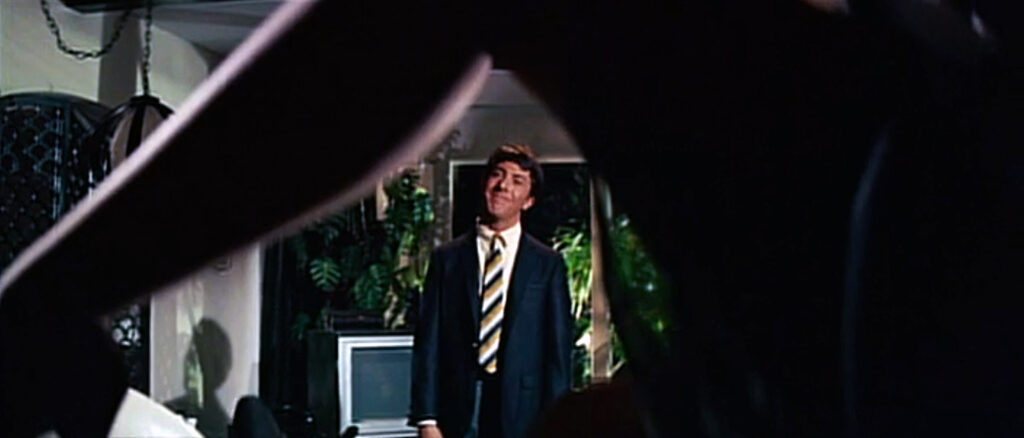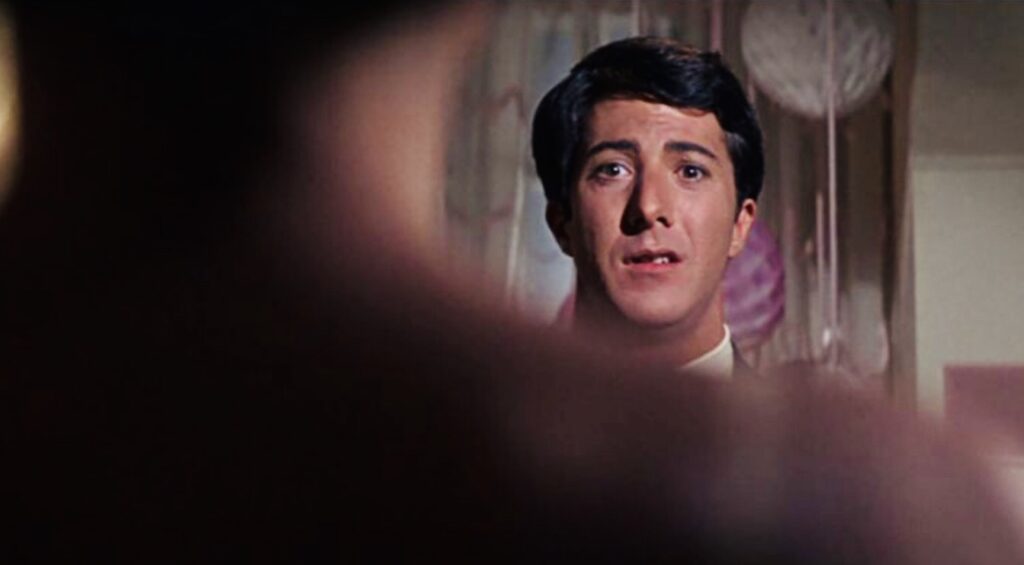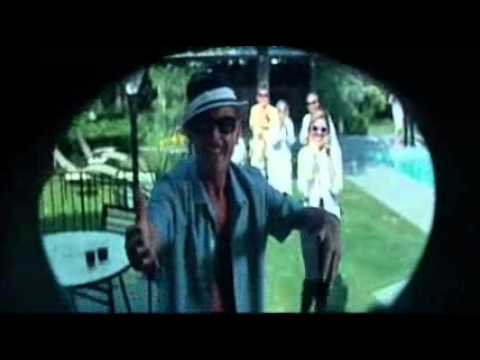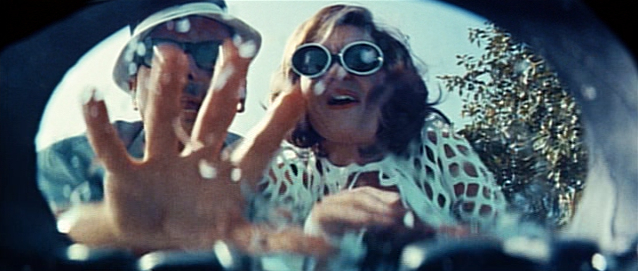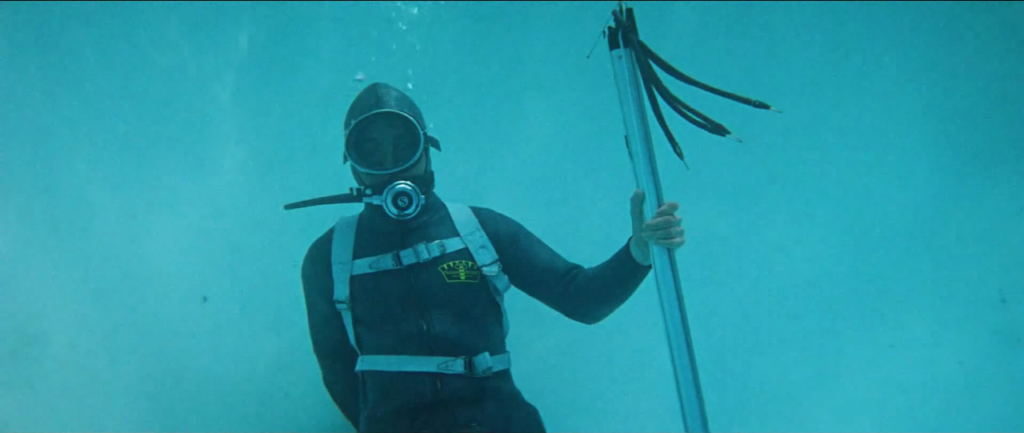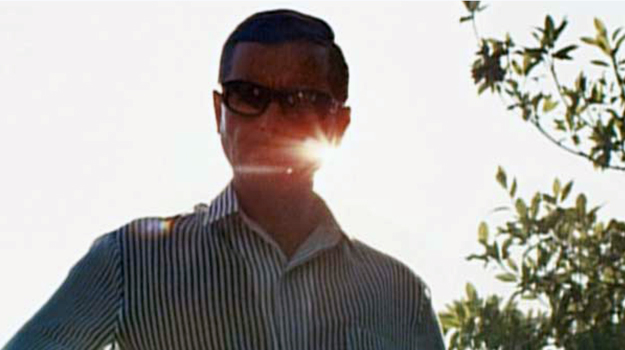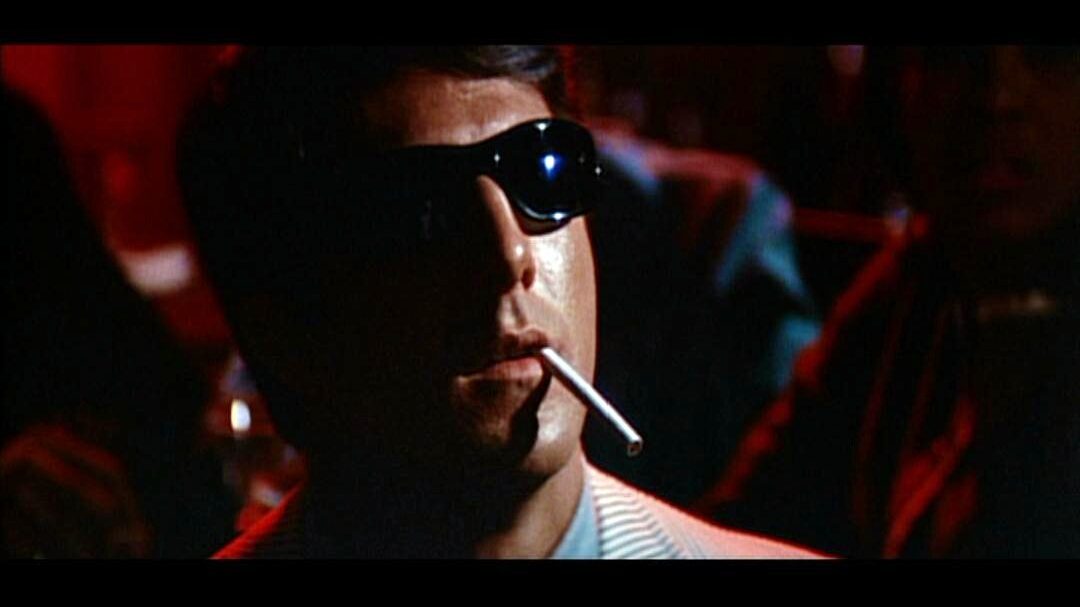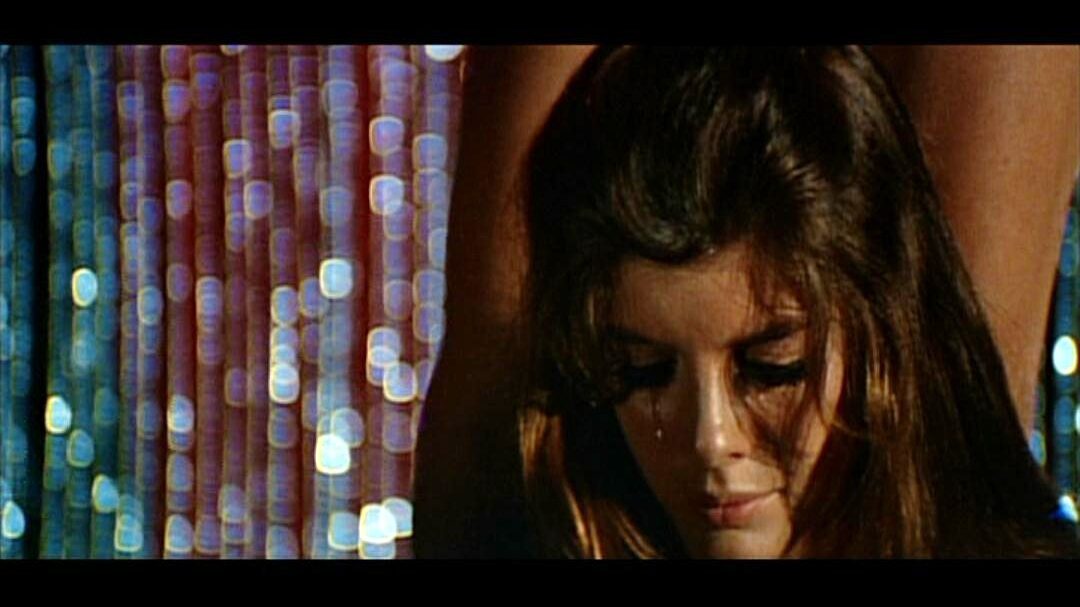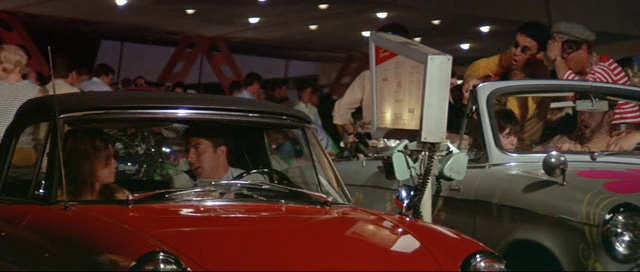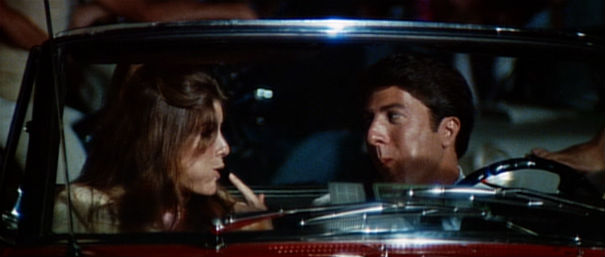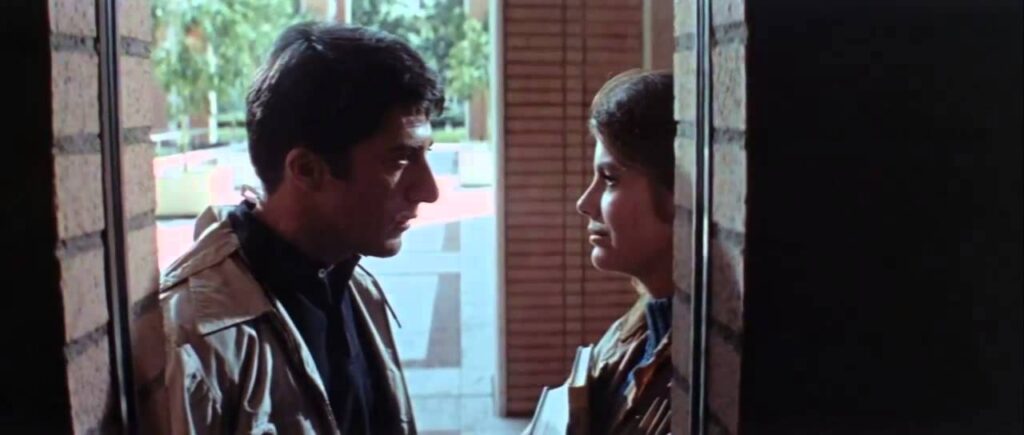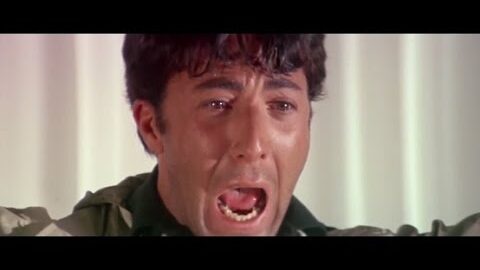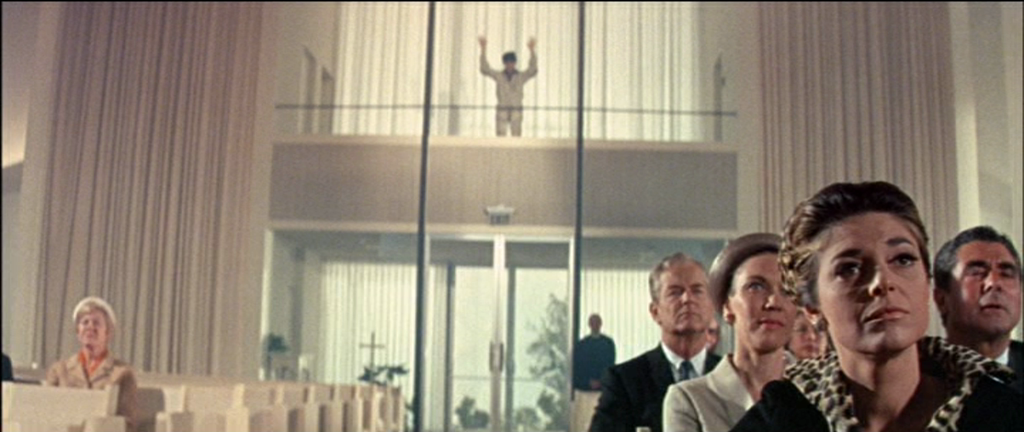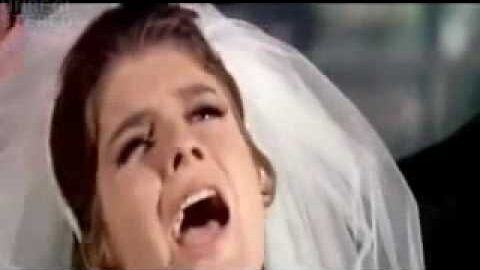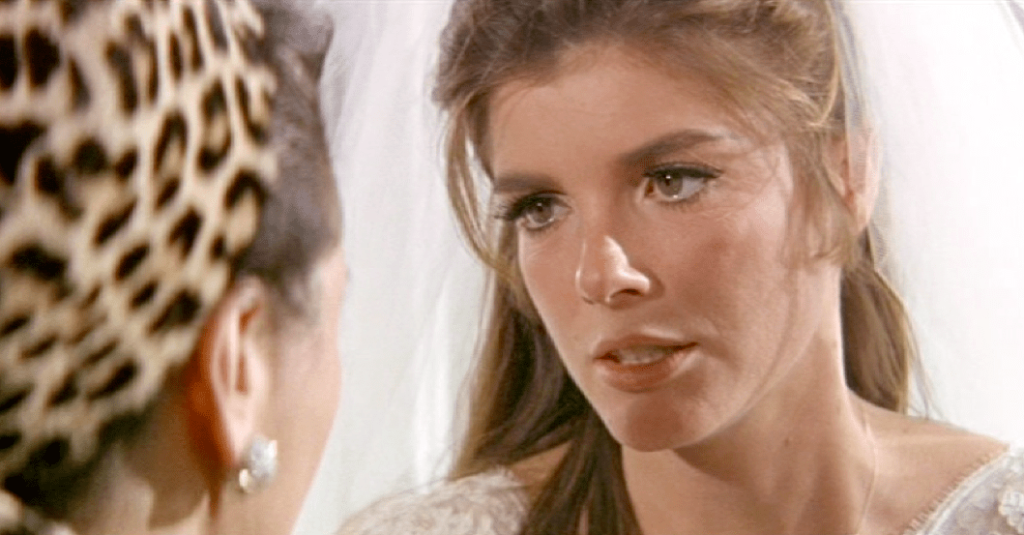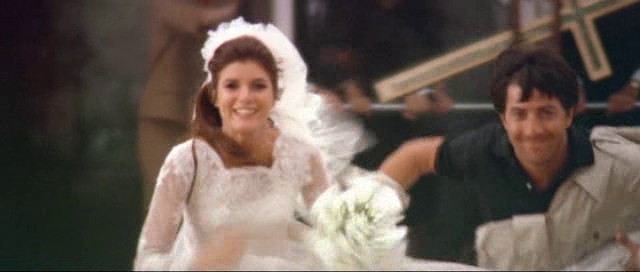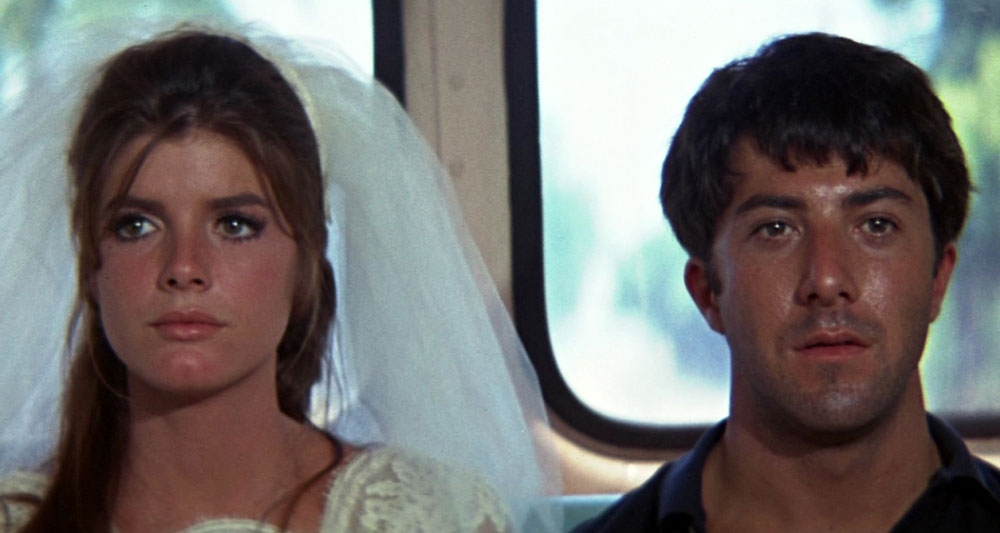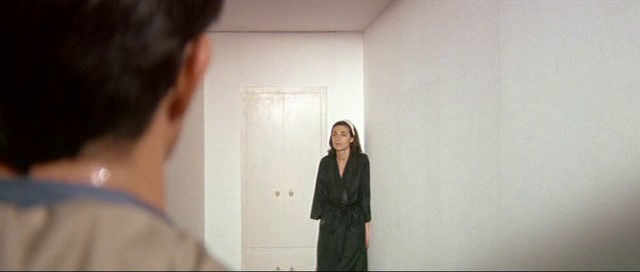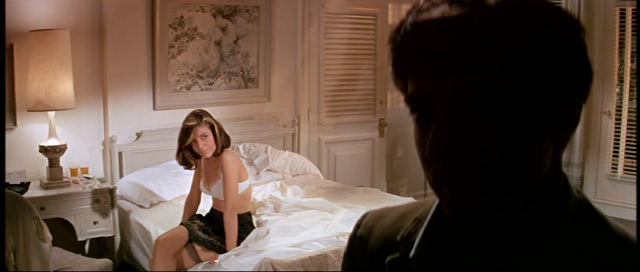
The Graduate (1967) is the seminal film of the late 60s. It spoke to an entire generation of youth who were disillusioned and disaffected. The Baby Boomers had more expectations placed upon them than any previous generation. As their ideals about what America was supposed to be came crashing down around them, the Boomers began to question everything that was expected of them.
This entire generation discovered The Graduate in the Winter of 1967-68 and saw a film that spoke to the very core of their existence.
Warning, this review contains far more details and spoilers than we usually give. But we feel the film is so in depth, meaningful and important that it’s worth it in order to attain a greater appreciation of the experience. While the story rolls over you as easily as water over pebbles in a stream, there’s much more complication residing just under the surface.
America between 1945 and 1965
The Greatest Generation had come home from the Second World War with great hopes and visions for the future. Everyone would have their own home in the burbs, a car, greater wealth and the ever increasing ability to be consumers. The hopes they had for their children were even greater. Going to college, get a good job, get married, get a bigger house in the burbs, get promotions, and most important of all don’t fall behind. The Boomers had come of age during the lofty rhetoric of the Kennedy years and the even higher ideals of The Great Society. With the tranquility and prosperity of the 50s and the social awareness of the early 60s, this generation came into the world with extremely high ideals and goals. They were primed for a huge let down.
Vietnam. One of America’s most divisive wars, Vietnam came into direct conflict with what the Baby Boomers had been instilled with. At first inconvenient to them, the war in Vietnam quickly became a deep inner conflict between what they had grown up believing and what they were seeing, which was giving them a growing mistrust of their government. What the government was saying and the reality on the ground in Vietnam were obviously two different things. Boomers didn’t want the future they had been promised taken away from them and they slowly began to feel that everything they had been brought up to believe was an illusion. The Baby Boomers were rejecting everything they had been brought up with.
Enter “The Graduate”
The Graduate was released at the perfect time. In December, 1967 the “Summer of Love” had just ended and America was entering the cataclysmic year of 1968. The Boomer’s dissatisfaction with “the Establishment” was entering its peak.
Then along comes Benjamin Braddock, played by Dustin Hoffman. Boomers saw themselves in Benjamin. He was asking all the same questions they were. They instantly accepted him as one of their own.
Disillusionment
Benjamin had the same upbringing as the Boomers. A nice home in the burbs with well to do parents and a college education. He has always excelled in life.
As he comes home after graduating college, Ben is worried about his future. He feels the expectations closing in on him. When someone combines worry over the future with pressure to conform and pursue a certain future you’re bound to get a powerful reaction.
Disaffected
Ben just wants time to think. yet everything around him is saying “follow the path.” Live up to the expectations imposed on you. But Ben is resistant. Though it is never said, it’s almost as if we can see Ben thinking “but what it I don’t want this? Is this really who I am?” It’s another critical element
in the film that drew the Boomers to identify with Ben. These were the same thoughts they were having. Throughout the film, Ben acts on this disaffection, sometimes unaware he is doing that. Disaffection also affects Elaine (played by Katherine Ross) later in the film until she too chooses to follow Ben’s path.
Mrs. Robinson
Ben begins to react for reasons largely unknown to him at first. While he is experiencing his disillusionment, Ben has an encounter with the wife of his father’s business partner, Mrs. Robinson, played by Anne Bancroft.. She is also experiencing her own disillusionment and disaffection. As a young art student in college, she becomes pregnant with Elaine and “has to get married,” This was at a time when out of wedlock birth was still punished. The parents weren’t punished, but the child was stripped of most of their rights including the right to vote and receive government benefits. As young woman with a dreamy, glamorous college major, she had all of that taken away from her. She doesn’t even sleep in the same room as her husband any more.
Mrs. Robinson lures Ben into driving her home from his graduation party. She continues manipulating him to come into the house and then upstairs where she offers herself to him, either then or in the future.
Ben is now not only anxious but horrified. He rejects the offer and leaves when he hears Mr. Robinson coming home.
Finally, a fateful event occurs a few days later when Ben’s parents have purchased a scuba outfit for him and want to show him off to their friends.
Embarrassed, he at first resists. His father gives him a gentle push into the pool. He tries to get out but they push him back under.
Finally, Ben succumbs but rather than swim around the pool he just sits at the bottom. This becomes Ben’s transitional moment.
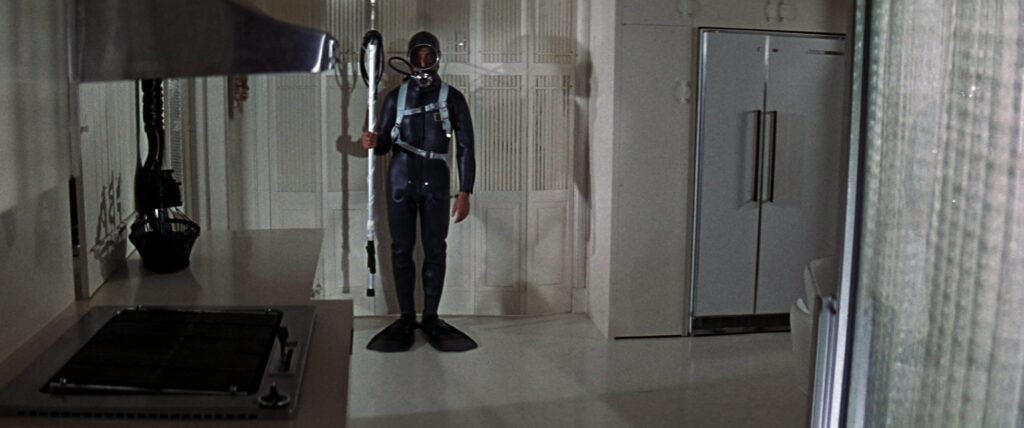
Ben acts out
In an obvious attempt to feel better, Ben calls Mrs. Robinson and takes her up on her offer. He probably feels that losing his virginity will help him lose his feeling of being an outsider. Thus begins Ben’s transition from feeling like an outsider and isolated into fully rejecting “the establishment,” as it was called in the late 60s.
In a seminal moment for the Boomers, Ben’s father confront’s him one day while he is floating in the pool. He asks what he’s been doing. “Drifting” replies Ben. An apt description of what Ben is now doing with his life.
He asks if he’s going to grad school. “No.” He then asks what was all that hard work in college for. Ben’s response when to the Boomer’s core: “you got me.”
Elaine
Pressured by his parents and Mr. Robinson to date his beautiful daughter, Elaine, Ben finally succumbs.
Their date shows just how far Ben has fallen. He treats her rudely, walking out ahead of her and taking her to a strip bar. He’s wearing sunglasses and smoking.
Elaine can’t understand why he’s doing all of this. Finally she begins to gently cry. Something comes over Ben and his whole demeanor changes. He catches Elaine as she is running out of the bar and apologizes, telling her “I hate myself like this” and gets her to stay on the date.
Suddenly everything changes. Ben has become a real person again, showing Elaine his actual innocence and honesty.
They discover there is real chemistry between them. She agrees to another date and thus begins Elaine’s own transition away from the Establishment.
Elaine returns to Berkeley after an event I’m saving for you to see. Ben pursues her there, but she has been cornered into marrying a very establishment character. Right away we can see in direct comparison that between the two Ben is the more natural person.
Director Mike Nichols gives us a subliminal hint as Elaine and her bland fiance (appropriately named Smith) walk away. His arm is around Elaine but she does not reciprocate.
Ben begins to win over Elaine. She too begins to question what she really wants in life and how she really feels.
As her demeanor becomes softer towards him, it’s clear that Ben is convincing her.
Elaine’s parents hear about what is happening and hastily make plans.
End Scene
The final scene of The Graduate is one of the most memorable in history. Elaine’s parents have arranged for a quick wedding to Smith.
Ben rushes to the church but finds it locked. He finds his way in to the second floor, but it is too late. He sees the ceremony end.
He begins rapping on the large window and calling out to Elaine.
He catches her attention and after a brief moment of contemplation she screams out “Ben!” Elaine’s transition is complete. She’s joined Ben as an anti-establishmentarian.
She leaves Smith at the alter and rushes out to join Ben. Mrs. Robinson screams at her “it’s too late.” “Not for me!” she replies.
They fight their way out of the church and run away, having locked everyone in with a cross through the door handles.
They jump onto a bus and sit in the back. Each begins contemplating what comes next. The audience is left wondering what are they going to do now as the bus rolls away. A fitting, and revolutionary ending.
Performances
It almost seems anti-climatic to talk about anything else, but try I will. Dustin Hoffman delivered a star making performance. He succeeded brilliantly at portraying all the aspects of Ben from his anxiety to his rebellion and feeling like an outsider. Most importantly, he gave Ben a certain innocence throughout the movie which kept him likeable even when he shouldn’t have been. Throughout the movie, he kept Ben real and natural. It made both him and his path the one the audience identified with.
Anne Bancroft brought depth to Mrs. Robinson. Her performance is so powerful that you’d never guess that she was only five years older than Hoffman, a character half the age of hers. Manipulative throughout, sometimes even cruel, she also successfully reveals an inner vulnerability in Mrs. Robinson. We learn that part of her reason for pursuing Ben is to find the happiness she had in her youth. While this ultimately fails, leaving her more hardend than before, wo don’t really hate her for it.
Katherine Ross a hard job that looks effortless on the screen. The vulnerability and naturalness of Elaine was the easy part, but she also had to pull off three different transitions between her and Ben. From accepting him, to being repulsed by him, to choosing him in the end. Making those shifts believable would be a monumental task for any actor. Ross pulled it off without making Elaine seem flighty, but rather contemplative and real. An entire generation of young men fell in love with Katherine Ross when they saw this movie.
Stunning Direction by Mike Nichols
The Graduate was also a star maker for Mike Nichols. There isn’t a single unnecessary or throw away scene in the entire movie. Despite everything going on in the movie, things never overtly overstated and that’s the beauty of it. Nichols isn’t beating you over the head with it, he’s actually letting the audience do the thinking, which is what you want them doing. Art should be more than just an entertainment. It should provoke contemplation and analysis and thinking within oneself. At this Nichols succeeds brilliantly and it’s what keeps his movie relevant.
Nichols subtlety in directing The Graduate also came out in the way he used distance, angles, light and shadows in his camera compositions.
Time and again he uses distance from both the camera and other characters to subtly accentuate that character’s sense of isolation or status as an outsider. Hoffman’s status could not be more perfectly displayed in the scuba scene. He feels all alone in the world.
Shadows also show Ben’s sense of aloneness and vulnerability. We always see him in shadow when he’s at his lowest.
Angles accentuate anxiety. In the seduction scene, Ben at the bottom of the stairs shows his anxiety about what will happen if he goes upstairs.
Legacy of The Graduate
The Graduate had a lasting impact on the Baby Boomers. They found someone like themselves through Ben and also found someone who let it all go and followed his own path. The Graduate should be a must see movie for the Millennials. They will find something similar to what they are experiencing today: questioning everything about our society.
The Graduate was a runaway success earning $190 million from a budget of only $3 million. It was one of the major contributors to the establishment of the American New Wave. It received seven Academy Award Nominations including Best Picture, Actor (Hoffman,) Actress (Bancroft,) Supporting Actress (Ross,) Screenplay and Cinematography. Mike Nichols won as Best Director.
